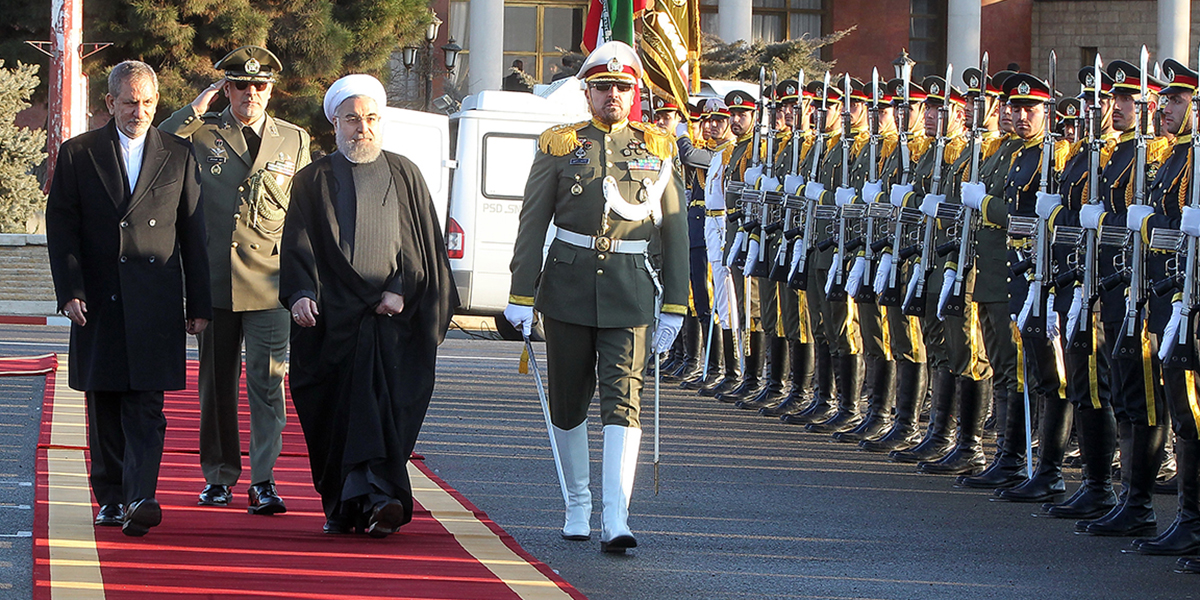
Integrating Iran Into the International System
Share
On Saturday, International Atomic Energy Agency (IAEA) Director-General Yukiya Amano confirmed that Iran had complied with the July 2015 nuclear deal. As a result, the United Nations, United States and the European Union lifted economic sanctions in a historic step toward the country's re-integration into the international system. Under the agreement, Iran has retained 300 kilograms of enriched uranium, shipping the rest to Russia. The country, furthermore, removed two-thirds of its centrifuges.
Washington, of course, hasn't lifted all sanctions. As a matter of fact, the U.S. Treasury Department on Sunday sanctioned 11 Iranian-linked companies for their role in Tehran's ballistic missile program.
Either way, Iran stands to profit from rapprochement: According to the U.S., Iran will recover approximately $100 billion - money coming from Iranian oil sales but was simply piling up in international banks due to sanctions. At the same time, a number of multinational corporations including Shell, Total and Airbus, which had been forced out of the Iranian market, are planning to return soon.
More important, however, are political gains. The 2015 nuclear deal effectively marked the end of Iran's isolation, which dated back to the Islamic revolution. The agreement, furthermore, will make it possible for Tehran to pursue closer cooperation with the West. Moving forward, the U.S. and Iran, for instance, could work together in a number of other areas.To be clear, the rapprochement between Washington and Tehran didn't start last year. The U.S., knowingly or not, strengthened Iran by invading Afghanistan and Iran. In the Arab Spring's wake, both governments considered Sunni radicalism a national security threat. Having worked hard to distance Iran from Russia, Washington might choose to work more closely with Tehran on military issues including the Syrian civil war.The nuclear deal also has a huge impact on Iran's official ideology. In light of the most recent developments, Tehran prepares to leave behind its ideological challenge to the West. Nowadays, the Islamic revolutionaries are less interested in describing the U.S. as an imperialist country or the "great satan." Instead, Iran opted to integrate into the international system and become the standard-bearer of Shiite nationalism. With the notable exception of Israel and Saudi Arabia, the international community welcomed the developments as Turkey, which stood up to Washington in 2010 to call for nuclear talks, issued a statement in support. Hailing the nuclear deal and Iran's integration as fruits of smart diplomacy, U.S. President Barack Obama said the agreement "will make America and the world safer and more secure." Iranian President Hassan Rouhani, echoing Obama's sentiments, argued that the nuclear deal created an opportunity to promote regional stability and security.But does the nuclear deal make the Middle East a safer place? Strictly speaking, a nuclear war is less likely to take place. However, it is too early to assume that the actual threats to regional stability - violence and proxy wars - have been neutralized. At this point, it remains to be seen how Iran's re-integration into the international system will affect the region. Having revisited its take on the West, Tehran now needs to realize that it is becoming increasingly isolated in the Muslim world. Nowadays, not only "authoritarian Sunni rulers" but also the people view Iran as an opportunistic country implementing nationalist policies with no regard for moral obligations. In this sense, the argument that Iran doesn't attack its neighbors means little because Tehran has been actively exploiting domestic problems across its borders as well as regional crises through soft and hard power instruments.
Having struck a lucrative deal with the West, Iran now finds itself faced with a unique challenge: While the country's political influence grows, its official ideology is bound to weaken. Although closer ties to the West mean a stronger economy and more political capital, the agreement is bound to deprive the Iranian government of anti-Western ideology. Likewise, Iran's growing influence over the Shiite community makes Sunni Muslims more suspicious of its motives. Although Shiite nationalism might unite the Iranian people, it will promote hostility toward Iran abroad. The only way to address this challenge is to reach out to regional powers including Turkey through diplomatic channels. Moving forward, the main question about Iran's re-integration will be which goals Tehran will try to accomplish by using its new assets.
[Daily Sabah, January 20, 2016]
Tags »
Related Articles






